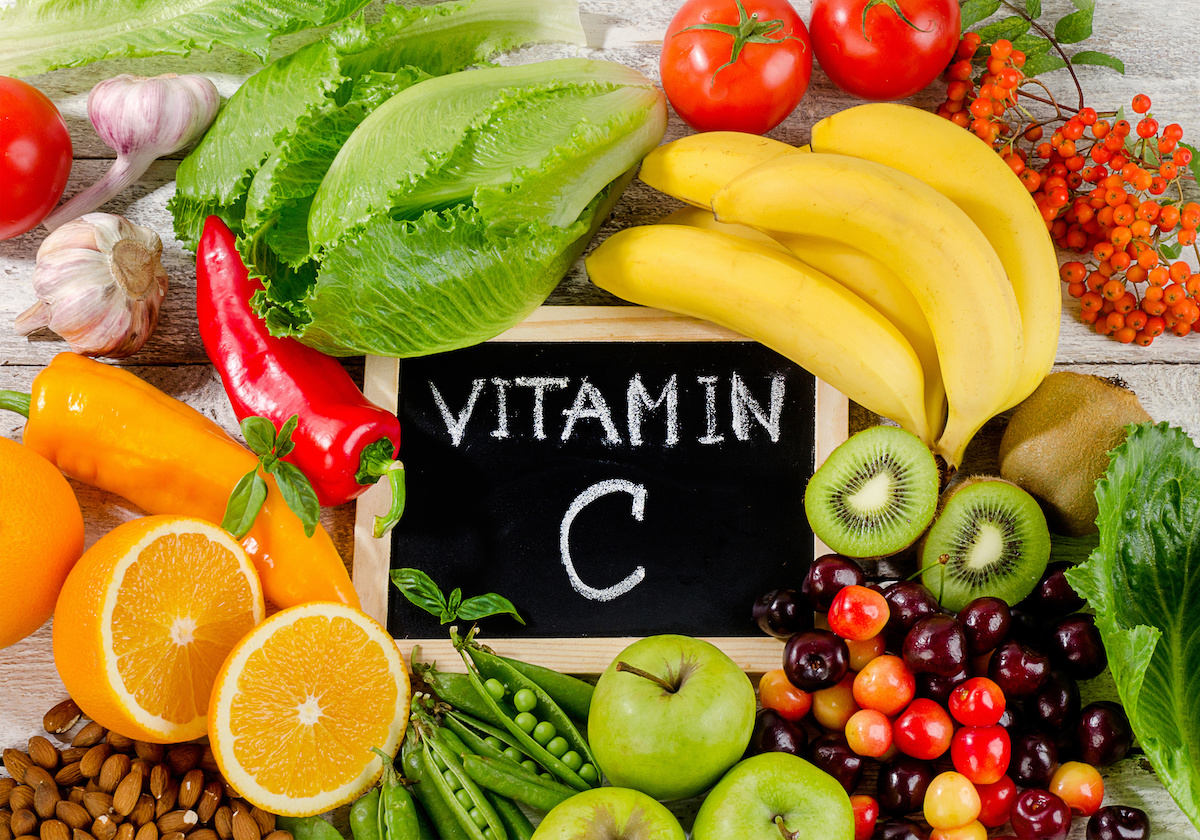Vitamin C, also known as ascorbic acid, is a vital nutrient that plays numerous roles in maintaining good health. From supporting the immune system to promoting skin health, its benefits are wide-ranging and well-documented. In this guide, we’ll explore everything you need to know about vitamin C, its benefits, sources, recommended intake, and more.
What is Vitamin C?
Vitamin C is a water-soluble vitamin that acts as a powerful antioxidant in the body. It is essential for the growth, development, and repair of all body tissues. Unlike some animals, humans cannot produce vitamin C on their own, so it must be obtained through diet or supplementation.
How does Vitamin C work in the body?
Vitamin C functions as an antioxidant, protecting cells from damage caused by free radicals. It is also involved in the synthesis of collagen, neurotransmitters, and carnitine (a molecule involved in fat metabolism).
Health Benefits of Vitamin C
1. Immune Support
Vitamin C is well-known for its role in supporting the immune system. It helps stimulate the production of white blood cells, which are essential for fighting off infections. Additionally, vitamin C enhances the function of these immune cells, helping the body defend against pathogens.
2. Antioxidant Properties
As an antioxidant, vitamin C neutralizes free radicals, which are unstable molecules that can damage cells and contribute to aging and diseases like cancer. By scavenging these free radicals, vitamin C helps protect cells and tissues from oxidative stress.
3. Collagen Production
Collagen is a protein that provides structure to skin, bones, cartilage, and blood vessels. Vitamin C plays a crucial role in collagen synthesis, ensuring that tissues maintain their strength and integrity. This promotes wound healing, supports healthy skin, and maintains the health of connective tissues throughout the body.
4. Heart Health
Vitamin C may contribute to heart health by supporting healthy blood pressure levels and improving blood vessel function. It helps maintain the elasticity of blood vessels, which can reduce the risk of hypertension and cardiovascular disease.
5. Enhanced Iron Absorption
Vitamin C enhances the absorption of non-heme iron (the type of iron found in plant-based foods and supplements). By converting iron into a form that is easier to absorb, vitamin C helps prevent iron deficiency anemia and supports overall energy levels.
6. Skin Health
As a promoter of collagen synthesis and an antioxidant, vitamin C contributes to healthy skin by reducing oxidative damage and supporting the skin’s natural repair process. It may also help prevent and treat UV-induced photodamage, such as wrinkles and pigmentation.
7. Reduced Risk of Chronic Diseases
Due to its antioxidant properties and role in supporting overall health, vitamin C intake has been linked to a reduced risk of chronic diseases, including certain cancers, cardiovascular diseases, and neurodegenerative disorders.
8. Cognitive Function
Some studies suggest that vitamin C may play a role in maintaining cognitive function and reducing the risk of cognitive decline as we age. Its antioxidant properties protect brain cells from oxidative stress, which is believed to contribute to neurodegenerative diseases like Alzheimer’s.
9. Wound Healing
Vitamin C is essential for the formation of new connective tissue and skin cells, making it crucial for wound healing. It promotes the synthesis of collagen, which helps close wounds and supports the skin’s barrier function.
10. Mood and Stress Management
There is evidence to suggest that vitamin C may play a role in reducing stress and improving mood. It is involved in the synthesis of neurotransmitters like serotonin, which regulates mood, sleep, and appetite.
Food Sources of Vitamin C
Vitamin C is found in a variety of fruits and vegetables. Some of the best food sources include:
- Citrus fruits (oranges, grapefruits, lemons)
- Berries (strawberries, blueberries, raspberries)
- Kiwi fruit
- Bell peppers (especially red peppers)
- Broccoli
- Brussels sprouts
- Tomatoes
- Spinach
- Potatoes
Recommended Intake of Vitamin C
The recommended daily intake of vitamin C varies by age, sex, and life stage. Here are the general guidelines:
- Adults: 75 mg for women, 90 mg for men
- Pregnant women: 85 mg
- Breastfeeding women: 120 mg
Smokers and individuals under high levels of physical or psychological stress may require higher amounts of vitamin C.
FAQs About Vitamin C
What are the symptoms of vitamin C deficiency?
Vitamin C deficiency can lead to symptoms such as fatigue, weakened immune function, bleeding gums, slow wound healing, and rough, dry, or scaly skin.
Can you get too much vitamin C?
While rare, excessive intake of vitamin C (more than 2000 mg per day) can cause gastrointestinal upset, diarrhea, and in some cases, kidney stones.
Is it better to get vitamin C from food or supplements?
Getting vitamin C from whole foods is generally preferred, as it also provides other beneficial nutrients and phytochemicals. However, supplements can be useful for individuals who have difficulty meeting their vitamin C needs through diet alone.
Does cooking affect the vitamin C content of foods?
Yes, vitamin C is sensitive to heat and can be lost during cooking. To minimize nutrient loss, it’s best to cook fruits and vegetables using methods that preserve vitamin C, such as steaming or microwaving.
Can vitamin C prevent or treat the common cold?
While vitamin C may reduce the duration and severity of cold symptoms in some people, it does not prevent the common cold outright. However, maintaining adequate levels of vitamin C can support overall immune function.
Are there any medications that interact with vitamin C?
High doses of vitamin C can interact with certain medications, including chemotherapy drugs, blood thinners, and certain antibiotics. Always consult your healthcare provider before starting a new supplement regimen.
Can vitamin C help with skin aging?
Vitamin C’s antioxidant properties can help protect the skin from oxidative stress caused by UV radiation and pollution, which contributes to skin aging. Regular use of vitamin C skincare products may improve skin texture and reduce the appearance of wrinkles.
Is vitamin C safe during pregnancy?
Yes, vitamin C is safe for most pregnant women when consumed within recommended levels. Adequate intake of vitamin C is important for fetal development and maternal health.
Can vitamin C improve iron absorption from plant-based foods?
Yes, pairing foods rich in vitamin C (such as citrus fruits or bell peppers) with iron-rich plant foods (like beans or lentils) can enhance the absorption of non-heme iron.
Does vitamin C have any effect on mood?
There is some evidence to suggest that vitamin C may help regulate mood and reduce symptoms of depression. It plays a role in the synthesis of neurotransmitters like serotonin, which are important for mood regulation.
- Weight Management And Metabolic Health Market Performance UK - June 1, 2025
- Retinol Peel Near East Molesey, Surrey - May 31, 2025
- Skin Treatment & Skincare Consultations Near Pirbright, Surrey - May 31, 2025

